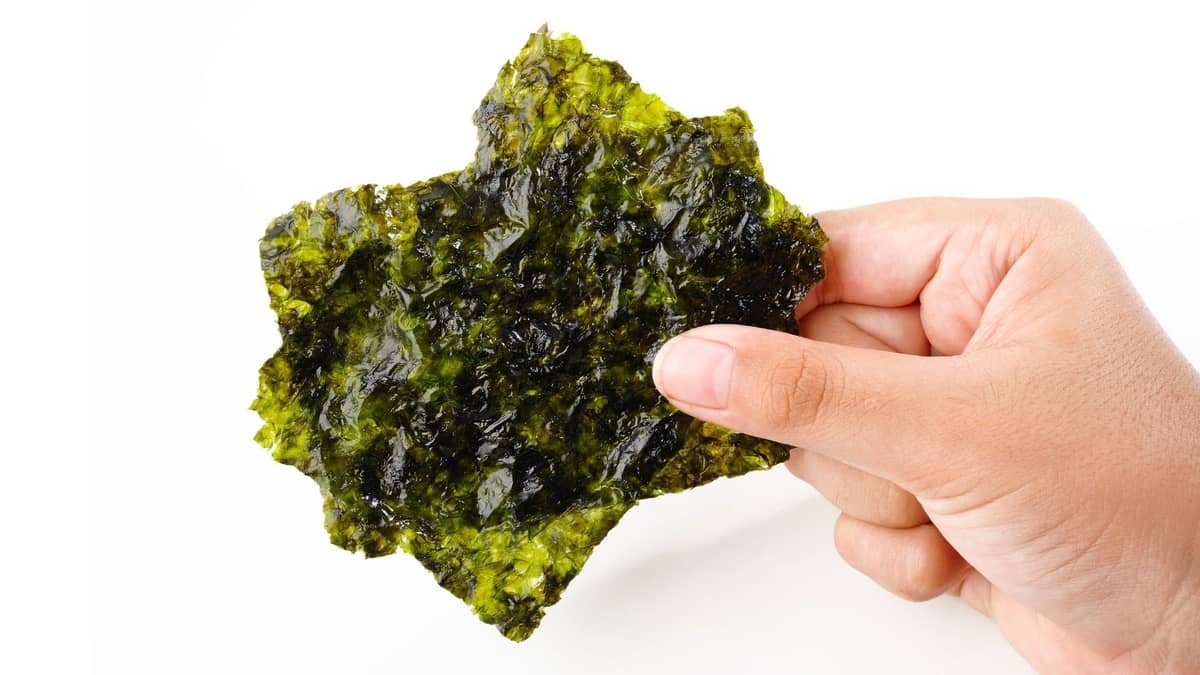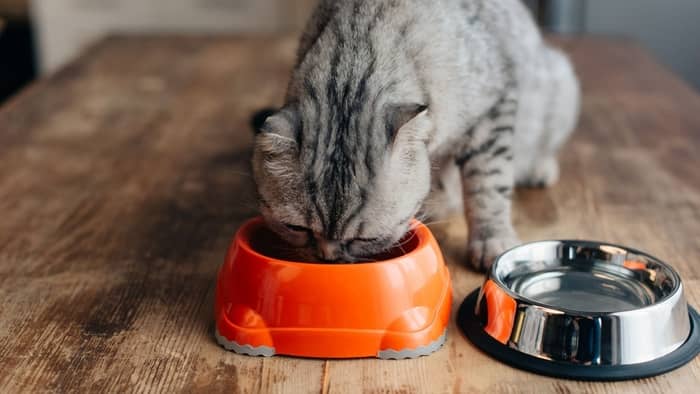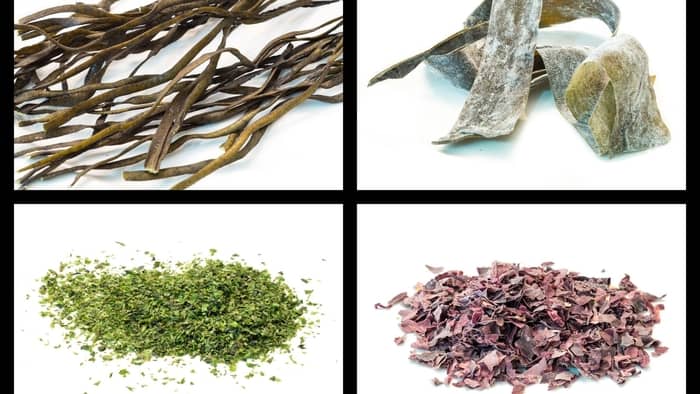The sea offers plenty of snacks for humans, but can cats eat Nori?
Nori (more generally known as seaweed) can be a tasty snack packed with healthy nutrients. If you want your cat to follow a seafood-based diet, it’s a great idea to make seaweed part of it!
IMPORTANT: At stuffaboutcats.com, we regularly consult with licensed veterinarians and other industry experts. However, the information found on stuffaboutcats.com should not be viewed as veterinary advice. We do our best to help you better understand your cats, but the information on this blog is not a substitute for veterinary guidance.
I enjoy munching on some Nori when I don’t feel like crisps – it’s lighter, healthier, and doesn’t taste like fish. Whenever my cats are around, I’ll give them a bite. They enjoy it as much as I do!
If you’d like to start feeding your cat seaweed, you’ll find all the information you need about it in this article. I explain why it’s such an excellent snack for cats and the many benefits it comes with.
Nori: The Breakdown
Nori is made from edible seaweed, and you can find it in many health shops and regular grocery stores. It’s a great addition to vegan and plant-based diets, and most recently, it turned into a healthy snack for cats.
The thought of feeding your cat seaweed may leave you a little skeptical at first, but it’s all the rave right now, and for a good reason.
The advantages of nori for cats
Including seaweed in your cats’ diet has several benefits. It will boost their digestive system, immune function, and leave them with a shiny coat.
- Digestive system
Seaweed is a fantastic source of prebiotics that can improve the growth of good bacteria in your cat’s digestive system when they regularly eat it. At the same time, it restricts the growth of harmful bacteria.
- Immune function
Our immune systems are linked to gut health, and with cats, it’s no different! If your cat has a healthy digestive system, they’re less likely to get sick.
- Appearance
Admit it – we all stare at cats with shiny coats! If you want your cat to be the neighborhood envy, you should start feeding them seaweed. The omega-3 fatty acids in seaweed will thicken your cat’s coat and give it a silky smooth shine.
Nutrients
There are eight types of edible seaweed, and the nutrient content of each is different. Nori contains the following:
- Vitamins A, B1, B2, C, E, K
- Calcium
- Copper
- Folate
- Iron
- Manganese
- Potassium
The disadvantages of nori for cats
When your cat overeats seaweed containing iodine, it can affect its thyroid health. Cats are prone to developing hyperthyroidism which can lead to several health concerns.
If you include seaweed in their diet, you should limit it to one or two small portions per week.
Why Can Cats Eat Nori?
Nori is non-toxic, which makes it safe for cats to eat. Your cat’s diet should mainly consist of meat, but 5 – 10% of it can be vegetables.
Technically, seaweed isn’t a vegetable, but it does provide some of the many nutrients that fruits and veggies do. Seaweed also digests quickly, making it gentle on your cat’s stomach.
How To Serve Seaweed To Your Cat
Serving your cat Nori is simple! You just have to find the right quality seaweed, and you’re good to go.
You can visit your local vet, pet shops, and health or grocery stores to see who stocks the best seaweed. The seaweed you choose should be preservative-free, spice-free, and unprocessed.
If not, it can be harmful to your cat.
You should know that feeding your cat Nori might not go as planned the first time. Some cats dislike the taste and texture of it. You can start by shredding the seaweed sheets and sprinkling them over wet cat food. If your cat eats this without any problems, you can give them seaweed crisps as a snack.
Edible Nori Alternatives
Nori is probably the most popular choice from the eight types of edible seaweed there is. If your cat doesn’t like it, you can try one of these alternatives:
Acadian sea kelp
Kelp grows in cold water and contains calcium, iron, magnesium, protein, and more! It makes a nutrient-rich ingredient in homemade cat food or treats.
Blue-green algae
Blue-Green algae contain beta carotene, glycogen, and trace minerals that can all improve your cat’s brain activity.
Dulse
Dulse is a green-seaweed rich in minerals and other nutrients. It can help prevent cancer and improve your cat’s digestive health.
Dulse is best used as a fine powder over your cat’s food.
Irish moss
Irish moss can be brown, green, purple, or red. It supports your car’s organs like the bladder, kidney, and lungs.
Kombu
Horsetail kelp (or Kombu) can be served marinated, roasted, or sautéed. It supports kidney, liver, and stomach functions.
Sea lettuce
Sea lettuce is rich in iron and tastes like an oyster. It has fewer minerals than other seaweeds but can still benefit your cat.
Wakame
Wakame is traditionally used as a medicine and can burn fatty tissues in cats. It prevents cancer diabetes and helps cats to regulate their metabolism.
Like Nori, it contains omega-3 fatty acids and different minerals and vitamins. You should also serve all of these Nori alternatives in moderation and never replace your cat’s meals with it.
Considering All The Facts
Seaweed holds a lot of health benefits for your cat. When you serve it in moderation, the risk of your cat experiencing any issues is minimal.
I hope after this article you feel assured that your cat can eat Nori. You should always feed them fresh, human-grade seaweed with no herbs or spices.
You can ask any questions you have about feeding your cat seaweed in the comments. I’ll answer them the best I can! Remember to also come back and tell us how your cat’s first experience with seaweed went.
Read more about Healthy Cat Food: Can Cats Eat Okra?
FAQs
Can kittens eat seaweed?
You can start adding seaweed to your kitten's diet as soon as they're ready to eat solid foods.
Why is seaweed good for cats?
Seaweed is packed with prebiotics that can help soothe your cat's sensitive stomach, boost their immune system, and keep their skin healthy.
Do cats like dried seaweed?
Typically, cats have no problem eating dried seaweed.


